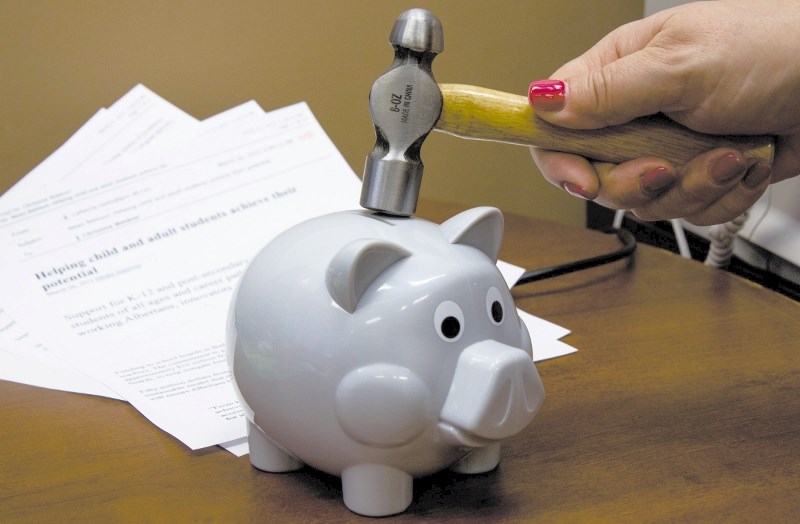Alberta’s deficit for next year could top $10 billion after projected quick recoveries in the price of oil were proven wrong, according to Finance Minister Joe Ceci.
“Falling oil prices continue to negatively impact our fiscal situation in Alberta,” he said. “And of course, it’s going to affect our bottom line.”
In its first budget as government, released Oct. 27, 2015, the province posted a $6.1 billion deficit in 2015/16 in order to stabilize frontline public services such as health care and education. Ceci said that deficit had grown by approximately $200 million.
Next year’s deficit was previously anticipated to hit $5.4 billion. According to Ceci, the prolonged slide in oil prices will see that number increase significantly when the spring budget is tabled in April, and is now forecasted at approximately $10.4 billion.
“You know, the first two months of 2016 saw oil prices fall to the lowest price in over a decade,” Ceci said.
“Economists we’ve consulted with, everyone agrees that low oil is our new normal. When you put together all of that, it’s our responsibility to work to find solutions to all these things and not make a bad situation even worse with cutting back on needed (services).”
Olds-Didsbury-Three Hills Wildrose MLA Nathan Cooper said $10 billion was “a shocking number.”
“We saw the Liberal Party campaign (federally) on a national deficit of $10 billion. Provincially, the NDP is headed in that direction,” he said. “We recognize that times are tough, but it appears the current government has no interest in looking at the spending side of the issue. (This proposal) assumes every dollar that is spent is well spent.
“We need to show appropriate fiscal restraint without cutting frontline services.”
As part of the budget as announced, $34 billion will be invested in infrastructure over the next five years, including yearly increases to health spending. According to Ceci, the revised numbers will not affect plans to invest in education, health care and infrastructure.
“That’s not the plan (to change course),” he said. “Infrastructure, when (dollars) are spent, it helps keep Albertans working during this downturn.”
Cooper said the opposition would release a document prior to the spring budget that would suggest alternative cost-saving measures.
“There are ways to save significant amounts of money without making draconian cuts, as we are sometimes accused of,” he said. “Certainly, we can look at corporate subsidies that have continued to take place, we can look at the massive amounts of bureaucracy in Edmonton that in many respects doesn’t teach children or doesn’t heal the sick or provide services to seniors, but is swallowed up in this middle management.
“We have to make sure that every penny that is available to us is spent on delivering (essential services).”
According to Ceci, a plan for the province to return to balanced budgets by 2020 is also in flux.
“Yeah, it is (delayed). It’s because of this fact – revenue has dropped 30 per cent since Budget 2015,” he said. “You can’t balance the budget on the backs of programs and services. You’ve got to take a longer view.”
Cooper said a moving time frame on balancing the budget would present a significant challenge.
“Budgets that aren’t balanced continually rack up significant amounts of debt which prevents future governments or generations to be able to afford the things that they need,” he said. “We’ll be spending over a billion a year on debt repayment. That’s a billion that isn’t building a school for that day, a hospital for that day. It isn’t providing the needs of the taxpayers of that time.”
Ceci said the Province’s economic prospects were not all grim, citing forestry and tourism as industries as benefitting from a weak Canadian dollar.
“(Those industries) are going to benefit from the weaker loonie. Agriculture and food manufacturing are also expected to expand,” he said. “In that area, cost pressures are easing up, which will help support more growth.
“We’re going to pull through. We’ve got a young and talented and educated populous. So as a province, we’re pulling through this.”



